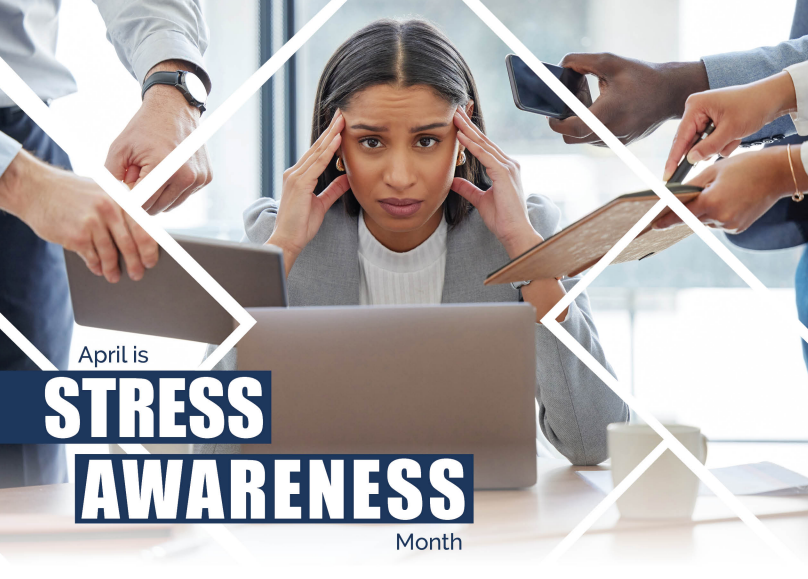Stress Management
 Mindfulness is a type of meditation in which you focus on being intensely aware of what you’re sensing and feeling in the moment, without interpretation or judgment. Practicing mindfulness involves breathing methods, guided imagery, and other practices to relax the body and mind and help reduce stress.
Mindfulness is a type of meditation in which you focus on being intensely aware of what you’re sensing and feeling in the moment, without interpretation or judgment. Practicing mindfulness involves breathing methods, guided imagery, and other practices to relax the body and mind and help reduce stress.
Spending too much time planning, problem-solving, daydreaming, or thinking negative or random thoughts can be draining. It can also make you more likely to experience stress, anxiety and symptoms of depression. Practicing mindfulness exercises can help you direct your attention away from this kind of thinking and engage with the world around you.
There are some signs that practicing mindfulness might be beneficial in your life. You might want to give mindfulness a try if:
- You are struggling with feelings of anxiety or depression.
- You feel distracted or find it hard to concentrate.
- You feel stressed.
- You have a hard time practicing self-compassion.
- You struggle with overeating or excessive snacking.
- You tend to focus on negative emotions.
- Your relationships with others are not as close or as strong as you would like.
Mindfulness Exercises
Incorporating mindfulness into your daily life involves several practices:
- Pay attention. Take the time to fully experience your surroundings using all your senses—touch, sound, sight, smell, and taste. For instance, savoring a favorite food involves appreciating its aroma, taste, and overall enjoyment.
- Live in the moment. Cultivate an open, accepting, and discerning attention in all your activities. Finding joy in simple pleasures can enhance your overall well-being.
- Accept yourself. Extend the same kindness and understanding to yourself as you would to a good friend. Embracing self-acceptance is a crucial aspect of mindfulness.
- Focus on your breathing. When faced with negative thoughts, find a quiet moment to sit down, take deep breaths, and close your eyes. Concentrate on the rhythmic flow of your breath in and out. Even a minute of mindful breathing can provide a sense of calm.
Structured mindfulness exercises can deepen your practice. Here are a few examples:
- Body scan meditation. Lie on your back, extending your legs and placing your arms at your sides with palms facing up. Concentrate your attention deliberately on each part of your body, moving sequentially from toe to head or head to toe. Notice any sensations, emotions, or thoughts associated with each body part.
- Sitting meditation. Sit comfortably with a straight back, feet flat on the floor, and hands in your lap. Breathe through your nose, focusing on the inhalation and exhalation. If distractions arise, acknowledge them, and gently shift your focus back to your breath.
- Walking meditation. Choose a quiet space of 10 to 20 feet. Walk slowly, paying attention to the experience of walking and the sensations of standing and balancing. When you reach the end, turn mindfully, and continue, maintaining awareness of your sensations.
Impact of Mindfulness
With the increasing popularity of Eastern practices in the West, mindfulness has been integrated into cognitive therapy. Research has yielded promising results in various areas, demonstrating the effectiveness of practicing mindfulness, mindfulness-based cognitive therapy (MBCT), and mindfulness-based stress reduction (MBSR) in addressing the following concerns.
Depression
A study indicated that individuals with residual depressive symptoms post-depressive episode observed a reduction in symptoms and ruminations through a mindfulness-based intervention, with sustained improvements noted a month later.
Additionally, research suggests that mindfulness can play a beneficial role in interrupting ruminative thought patterns related to stress, assisting individuals in avoiding prolonged fixation on negative thoughts.
Stress Management
Various studies indicate that mindfulness is beneficial for managing both daily stressors and more significant stresses encountered by individuals dealing with chronic or life-threatening illnesses. For instance, research suggests that Mindfulness-Based Stress Reduction (MBSR) may be effective in enhancing the psychological well-being of individuals facing breast cancer.
Anxiety Disorders
Individuals with anxiety disorders, such as generalized anxiety disorder (GAD), have shown substantial reductions in both anxiety and depressive symptoms through mindfulness-based interventions. Mindfulness practices can be effective in alleviating anxiety related to the future, offering a respite from stressful thoughts, and providing an opportunity for a mental break and enhanced perspective.
Reference:
- Elizabeth Scott, P. (2022, December 1). Can mindfulness relieve more than stress?. Verywell Mind. https://www.verywellmind.com/mindfulness-the-health-and-stress-relief-benefits-3145189
- Mayo Foundation for Medical Education and Research. (2022, October 11). Can mindfulness exercises help me?. Mayo Clinic. https://www.mayoclinic.org/healthy-lifestyle/consumer-health/in-depth/mindfulness-exercises/art-20046356



 Journaling typically involves the regular practice of maintaining a diary or journal to delve into thoughts and emotions surrounding life events. There are various approaches to this practice. While consistent journaling proves most effective for stress management and self-exploration, even occasional, sporadic entries can provide stress relief, particularly when focused on gratitude or emotional processing.
Journaling typically involves the regular practice of maintaining a diary or journal to delve into thoughts and emotions surrounding life events. There are various approaches to this practice. While consistent journaling proves most effective for stress management and self-exploration, even occasional, sporadic entries can provide stress relief, particularly when focused on gratitude or emotional processing.
 In the hustle and bustle of today’s fast-paced world, finding time for self-reflection can be challenging but is essential for personal growth and well-being. Prioritizing self-reflection offers numerous benefits including reducing stress, bettering connection in relationships, and enhancing general well-being.
In the hustle and bustle of today’s fast-paced world, finding time for self-reflection can be challenging but is essential for personal growth and well-being. Prioritizing self-reflection offers numerous benefits including reducing stress, bettering connection in relationships, and enhancing general well-being.
 Meditation can be a valuable practice for alleviating anxiety, tension, and worry, helping restore a sense of calm and inner peace.
Meditation can be a valuable practice for alleviating anxiety, tension, and worry, helping restore a sense of calm and inner peace.